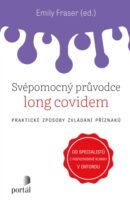Valeria Sizikova, Olga Anikeeva
Medailon autorů:
Valeria Sizikova, Dean of the Social Work Faculty at Russian State Social University, Doctor of Pedagogical Sciences, Professor. Sphere of scientific interests includes professional social education and analysis of specialist practical experience, social work with families with disabled members, author of various articles and textbooks on theoretical and practical problems in social work.
Olga Anikeeva, Associate Professor of Social Work Department at Russian State Social University, Candidate of Historical Sciences. Research interests include professional social education, history and theory of social work, social work with families with disabled members, author of various articles and textbooks on theoretical and practical problems in social work.
Anotace:
OBJECTIVES: The article is based on the authors’ study of parental views in a family with a
disabled child, the study of the parent`s subjectivity (awareness of their role in raising a child) and
their choice of a behavioural model in the upbringing process. THEORETICAL BASE: Includes
concepts of social views (Moscovici, 1973; 2000), subjectivity of individual personality (Leontyev,
1975), the concept of social design based on social perceptions (Lahlou, 2015), and the social
concept of disability, socialization, and social adaptation of a child with disabilities. OUTCOMES:
The research studies parent`s self-esteem, gives an assessment of their readiness to fulfil parental
responsibilities in raising a disabled child, and identifies patterns of parent behaviour in the child
raising process. METHODS: the study used a pilot questionnaire (n56), a semi-structured indepth interview method (n12), an expert survey of specialists and leaders of social organizations
providing social and pedagogical support (n12), as well as modelling method. SOCIAL WORK
IMPLICATIONS: The identified assessments and models of parental behaviours are important
components for further developing the formation of professional support views and programmes,
the support for changing problematic parental approaches and shortcomings, and the formation
of meaningful social partnership between the family with a disabled child and specialists who
provide professional assistance.
Klíčová slova:
disabled child, family with a disabled child, parenthood, parents’ subjectivity, parenting models, patterns of behaviour, parenting process, professional social assistance
s. 5–20






